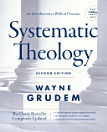Institutes of the Christian Religion: The Basics of Protestant Theology
John Calvin
Nov 2023 · DigiCat
Ebook
1479
Pages
family_home
Eligible
info
reportRatings and reviews aren’t verified Learn More
About this ebook
John Calvin's 'Institutes of the Christian Religion' stands as a foundational text of Reformed theology, meticulously articulating the principles of Protestant faith and the sovereignty of God. Written with clarity and conviction, this monumental work elucidates core doctrines, such as predestination and the sacraments, while reflecting the tumultuous socio-political landscape of the 16th century. Calvin's literary style skillfully blends rigorous theological discourse with accessible prose, inviting both scholars and lay readers into deep theological contemplation. John Calvin (1509-1564), a French theologian and reformer, was profoundly influenced by the challenges of the Reformation era, witnessing the need for a systematic and biblical approach to Christian belief. His own spiritual journey and experiences in Geneva catalyzed his desire to cultivate a reformed faith that emphasized a personal relationship with God. As a pioneering figure, Calvin shaped Protestant thought and ecclesiastical structure, leaving an indelible mark on Christianity. This seminal work is essential reading for anyone wishing to explore the tenets of Reformed theology or understand the historical context of Christian reform. Calvin's rigorous yet approachable examination of faith promises to inspire a deeper appreciation for the theological richness that shapes contemporary Christianity.
About the author
John Calvin, a seminal figure in the Protestant Reformation, was born on July 10, 1509, in Noyon, France, and died on May 27, 1564, in Geneva, Switzerland. His body of work has been profoundly influential in shaping the Reformed tradition within Christianity. Calvin's magnum opus, the 'Institutes of the Christian Religion' (Institutio Christianae Religionis), first published in 1536 and refined throughout his life, is a monumental work in Christian theology that articulates a cogent system of Protestant thought. His theological stance emphasized the sovereignty of God, the doctrine of predestination, and the absolute necessity of grace for salvation. A brilliant scholar and writer, he played a critical role in the doctrinal development of the Reformed churches and laid the doctrinal foundations for Presbyterian and other Reformed churches worldwide. Calvin's clear, rigorous, and persuasive literary style in articulating his theological vision has made 'Institutes' a foundational text for those within the Reformed branches of Protestantism. He was not solely a theologian but also a pastor and lawyer, which influenced his distinct approach to Christian doctrine, emphasizing its practical applications and the governance of the church. His writings continue to be studied for their religious, historical, and literary significance, maintaining a substantial impact on Western thought and Christian scholarship.
Rate this ebook
Tell us what you think.
Reading information
Smartphones and tablets
Install the Google Play Books app for Android and iPad/iPhone. It syncs automatically with your account and allows you to read online or offline wherever you are.
Laptops and computers
You can listen to audiobooks purchased on Google Play using your computer's web browser.
eReaders and other devices
To read on e-ink devices like Kobo eReaders, you'll need to download a file and transfer it to your device. Follow the detailed Help Center instructions to transfer the files to supported eReaders.








